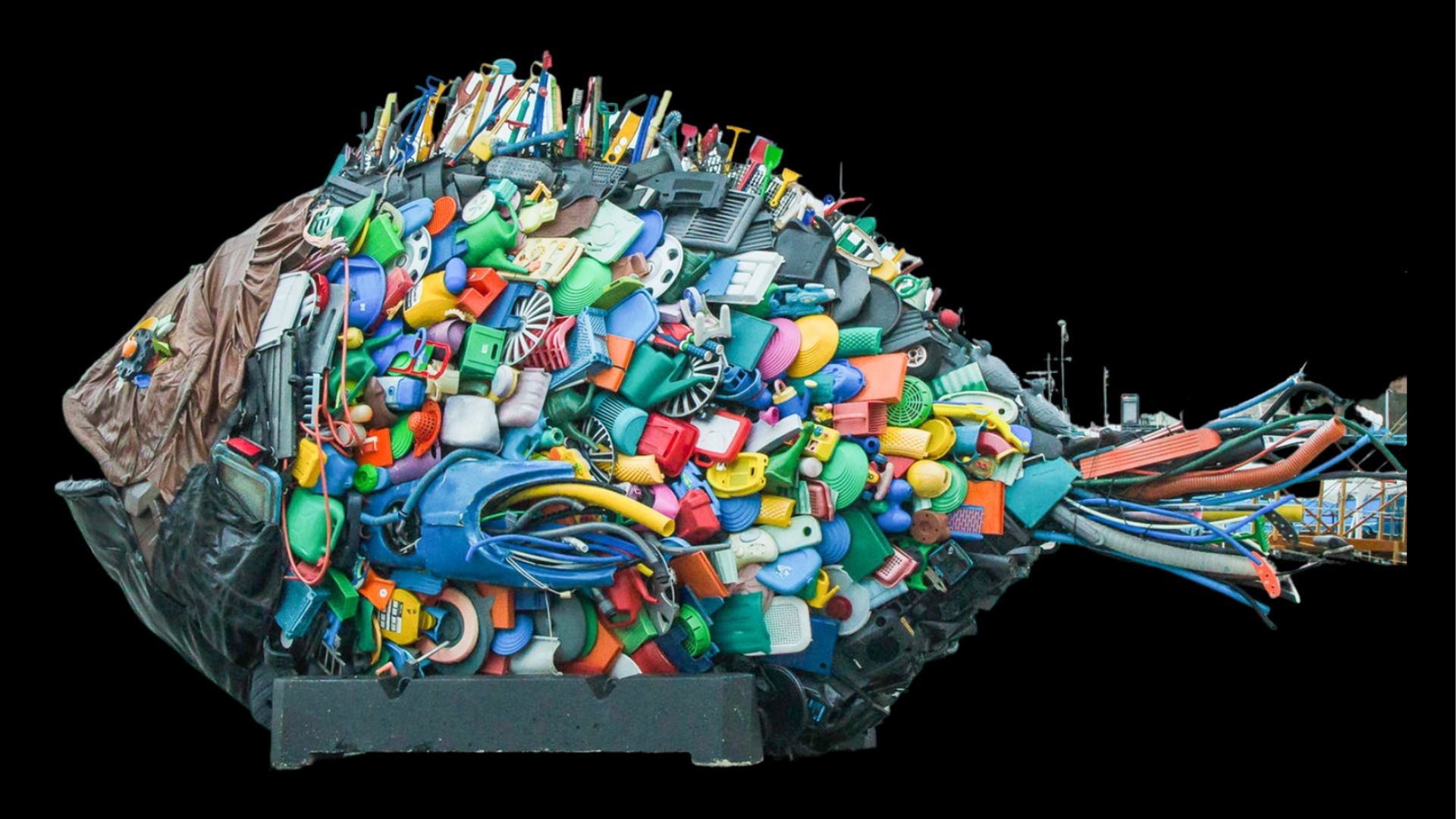Plastics: Retelling the Story of Waste

Plastic is one of the most significant discoveries of the twentieth century, making key innovation possible. However, it has also become a serious threat to humanity, with recent trends indicating that plastic production will surpass 1000 million tonnes by 2050.
To raise awareness about this urgent global challenge, Columbia Global Centers | Mumbai partnered with Columbia University’s Office of Undergraduate Global Programs for the Spring 2023 Global Columbia Collaboratory, Plastics: Retelling the Story of Waste. The Collaboratory is a semester-long initiative in which undergraduate students from Columbia University and from international universities come together to learn about and develop projects on an issue. This semester’s Collaboratory had 27 students from 11 different countries, of which 4 were from Ashoka University in India.
Tracing the Impact of Plastics
The first seminar in the series, Tracing the Impact of Plastic Pollution, was held on February 14, 2023, with panelists, Dr. Beizhan Yan, Lamont Associate Research Professor of Geochemistry at the Columbia Climate School, Dr. Alexandra Harrington, Chair of International Union of Conservation of Nature’s Task Force on Plastic Pollution, and Ms. Shalini Goyal Bhalla, Managing Director of the International Council For Circular Economy and a member of the NITI Aayog, Government of India. The session was moderated by Dr. Ravina Aggarwal, Senior Advisor, Columbia Global Centers | Mumbai.
Dr. Beizhan Yan provided an overview of the historical context and significance of plastic following its discovery in 1907. He then went on to discuss a study that he had participated in at Columbia, which had revealed that microplastics and nanoplastics were found in wastewater from washing machines, a first of its kind discovery. Emphasizing the impact of plastic pollution on human health, he said, “There are studies showing the presence of microplastics in lung tissues, in the bloodstream, as well as in the placenta, which can be extremely detrimental for a child.” Dr. Yan spoke about the importance of a multidisciplinary approach and the role of Plastic Pollution Analysis & Sustainability Solutions (PPASS), a network comprising over 40 faculty and scholars across multiple disciplines at Columbia University, to develop innovative tools and technologies that provide solutions for the sustainable management of plastic waste.
The second part of the session focused on international treaties and laws for controlling plastic pollution, with a presentation by Dr. Alexandra Harrington. She began by providing a background of the draft plastics treaty, started in 2022 as a call from the UN environmental assembly to begin negotiations for an international agreement on plastic waste management. Dr. Harrington explained that the aim of the treaty is not to ban plastic, but instead to address plastic pollution as a global issue and find ways to manage it in a sustainable manner. The treaty also aims to include perspectives from marginalized communities and other stakeholders in addition to nation states.
India’s legal and regulatory infrastructure affects the sustainable management of plastics was discussed by the third speaker, Ms. Shalini Goyal Bhalla. Ms. Bhalla emphasized a circular economy approach to plastic waste management, and the importance of including waste generators, urban local bodies, producers, brand owners, and importers as stakeholders. She called for waste tracking using technologies like Artificial Intelligence to enable a transparent reporting system compatible with environmental regulations, as well as economically viable waste collection and recovery solutions.
Students and other audience members raised questions on pertinent topics like the elimination of single-use plastic, packaging, policy initiatives, international treaty and laws, just transitions, circularity, and the role of startups. The session concluded with the agreement that there is a need for a multipronged approach to solve the plastic pollution crisis with a focus on circularity, innovative business models and policies, as well as relevant technology.
Plastic Warriors
With less than ten percent of the total plastics generated so far being recycled, the second seminar in the series, Plastic Warriors, discussed the creativity and innovation required to reimagine packaging and delivery models, new ways of recycling, and a strong ecosystem that integrates social and economic dimensions of waste management. Held on February 28, 2023, it featured Ms. Rashi Agrawal, Director-Partnerships at Banyan Nation, and Mr. Ved Krishna, Founder and Executive at Pakka Inc., in a session moderated by Dr. Ravina Aggarwal, Senior Advisor for the Columbia Global Centers | Mumbai.
Discussing the recycling industry in India, Ms. Rashi Agrawal shared the mission of Banyan Nation to build a product brand of high quality recycled plastics and to leverage mobile technology to integrate informal recycling networks. According to her, Banyan Nation’s proprietary cleaning technology eliminates over 90% of contaminants such as oil, labels, adhesives, inks, which can be hazardous for recyclers to handle. Additionally, field staff conduct regular training on segregation and sorting, improving feedstock purity by 20-30 percent.
Noting that the abundant circulation of single-use plastic poses a huge hurdle, Mr. Ved Krishna presented the mission and activities of his company, Pakka Inc. “Everything starts with a dream, and we have a singular idea of a cleaner planet,” he remarked. He explained how Pakka Inc. is working on providing regenerative packaging at scale and emphasized the importance of innovations that have been inspired by nature to ensure circularity is embedded into the products.
Both speakers agreed that dealing with plastics is a complex phenomenon that requires an innovative approach for both, effective recycling solutions, as well as sustainable alternatives to food packaging and delivery. They also advocated for regulations and incentives to encourage plastic waste management and a huge shift in the mindset of businesses to align with sustainability. As Mr. Krishna observed, “Small changes can lead to building momentum towards and start of the bigger movement of solving the plastic pollution crisis at a global scale.”